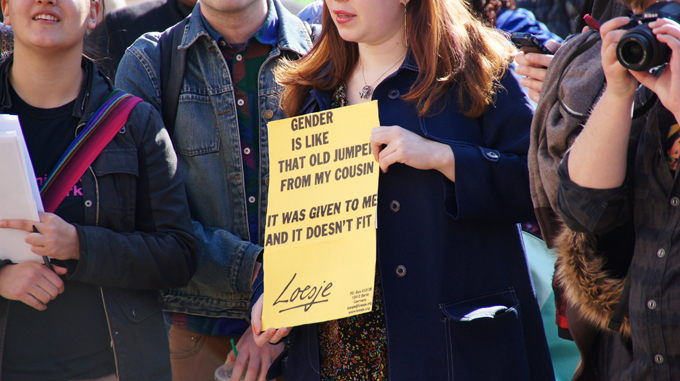
This is the fourth installment of a five-part series on cultivating gender-inclusive classrooms. It was written as a complement to “The Power to Include: A Starting Place for Creating Gender-Inclusive Literacy Classrooms,” an article that appears in the July/August issue of Literacy Today, ILA’s member magazine.
Literacy educators have a responsibility to place gender nonconforming students at the center of conversations about gender equity and gender-inclusive classrooms. Although this centering will look different at different grade levels and will vary with context, decentering cisgender privilege is the work of cisgender educators, and that involves stepping aside and giving gender nonconforming students the lead. Because centering gender nonconforming students is not the norm, the support of literacy educators is especially important when stepping aside. To support your gender nonconforming students, you may want to ask:
- What name would you like to go by? What pronouns do you want to use?
- Would you like to let your classmates know? If so, to what extent?
- What are some things that make you feel unsafe in/out of the school/classroom? How can I help make this a safer place for you?
- Is there anything you would like me to know?
You may want to explicitly ask the student which bathroom they prefer to use. Although school policies may be out of your hands, you can make accommodations that feel safe to the student while you advocate for their bathroom rights.
It is important that you keep the communication between you, the student, their guardian(s), and school leadership confidential. Other students and parents may have questions, and you must respect the gender nonconforming student’s wishes on what to share and what to keep private. You may suggest an informational meeting for students and parents, during which the unyielding mission is to learn about gender inclusivity and equity, not to argue about gender nonconforming students’ rights.
Dana Stachowiak is an assistant professor of Curriculum and Instruction in the Watson College of Education at the University of North Carolina Wilmington, where she coordinates the Curriculum Studies for Equity in Education Master’s program. Dana is also a literacy consultant with The Educator Collaborative. She holds a doctorate in educational studies with a concentration in cultural studies from The University of North Carolina at Greensboro, a master’s degree in curriculum and instruction from Winthrop University, and a bachelor’s degree in elementary education from Western Michigan University. Follow her on Twitter @DrStachowiak.